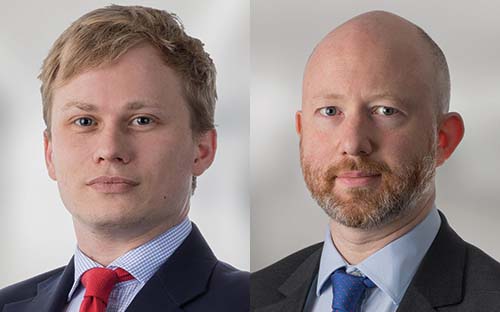In December, the EU adopted a package of regulatory measures intended to introduce a new prudential (capital adequacy, liquidity) regulatory regime for investment firms: the Investment Firm Regulation (IFR) and Directive (IFD). The measures are scheduled to come into effect in June 2021 – after the Brexit transition period expires, although the UK’s Treasury has indicated it will introduce a similar regime in the UK.
The regime applies to MiFID investment firms (securities and derivatives dealers, advisers, and the like). On the face of it, this has nothing to do with asset managers and the terms investment firm and investment manager are not synonymous.
Nonetheless, many Ucits and alternative investment fund managers carry out a limited range of MiFID activities, pursuant to optional allowances under the Ucits and AIFM Directives.
Even across the EU, member states have adopted different approaches as to whether to treat such managers as investment firms. Primarily, the legislation does nothing to clarify or harmonise such approaches – although this may change, with the development of secondary measures. Regardless, many investment managers will be dragged into the regime by virtue of their (or their affiliates’) other regulatory permissions. Now may be the time for investment managers to revisit their and their affiliates’ licences, in case the culling of unnecessary permissions may allow some managers to escape the regime.
Those asset managers that are caught by the regime will need to determine whether they are small and non-interconnected, in which case a somewhat lighter touch incarnation of the regime will apply. This is assessed by reference to a range of threshold tests: a firm will exceed such tests where, among other things, it holds client money or has assets under management (AuM) of over €1.2 billion.
However, the term ‘AuM’ is deceptive, as it includes assets subject to a purely advisory mandate and excludes assets under a standard Ucits or AIF management arrangement.
All firms under the regime will be subject to new capital adequacy requirements (which may apply on a group-wide basis), calculated on the basis of a quarter of fixed annual operating costs (which may be significant, given salary costs) or, where higher (except where they are small and non-interconnected) on the basis of certain other financial metrics known as K-factors. Such K-factors are driven by a range of metrics, beyond pure financial exposures, such as AuM (again, referring to the counterintuitive definition discussed above), and client orders handled.
Regardless of their quantitative impact, the requirement to assess, monitor and report such K-factors will require firms to build new, or repurpose and modify existing, systems and processes. Such capital requirements are supplemented by liquidity requirements, concentration limits, and supported by reporting, disclosure and regulatory assessment measures.
Thus, a regime that was designed to harmonise the treatment of MiFID firms, and to ensure that they are not subject to an inappropriate regime designed for banks, does nothing to clarify the position of asset managers, and risks only subjecting asset managers to a regime designed not for them, but for their investment firm peers.
Owen Lysak and Charles Morris, Clifford Chance
© 2020 funds europe





